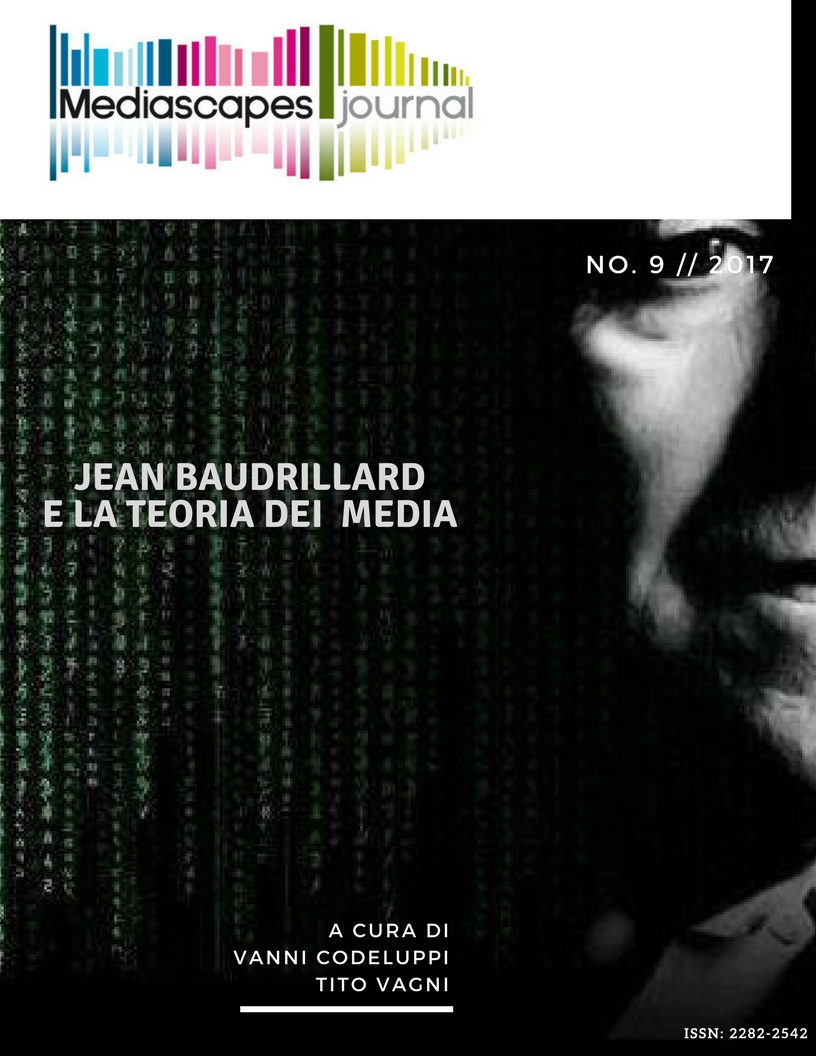Benjamin e il medium romanzo
Keywords:
Novel, Media, Benjamin, Cultural Industry, Imaginery, MetaphorAbstract
Walter Benjamin first described and understood media historical evolution in a holistic way. Analysing his attitude towards the novel, the most important genre of modern literature, is crucial for deepening Benjamin’s theories. This paper shows his critical process from youthful approach to Dostoevsky, influenced by his studies in Romanticism and by Lukács, and based on a double interpretive level: the “material content” and the “truth content” of a work of art, and its form as an open fragment within the dynamics of knowledge. In addition, it highlights Benjamin’s metaphoric structure discovery of space and objects until his first sociological insights at the end of the twenties. At that time he was particularly interested in the writing development, the literary genres and the popular culture ones, the collective imagery and information power. Finally, the paper focuses on the Benjamin’s media theoretical framework, when he seemed to shift his attention especially to cinema in his most famous essays (1934-1936). Even if his position on the novel was quite negative in his last years, the novel remains a relevant critical counterpoint. Indeed, Benjamin concentrated throughout the thirties on literacy narrative hypothesis according to media hybridization and montage practice, to the restoration of epic communication patterns and to Kafka’s prophetic and fully metaphorical tales.
Downloads
Published
How to Cite
Issue
Section
License
Mediascapes Journal is published under a Creative Commons Attribution Licence 4.0.
With the licence CC-BY, authors retain the copyright, allowing anyone to download, reuse, re-print, modify, distribute and/or copy their contribution. The work must be properly attributed to its author. It should be also mentioned that the work has been first published by the journal Anuac.
Having published these contributions for the first time, Mediascapes Journal will have the right to publish them integrally or partially as reprints or possibly as part of a thematic issue, in both digital and printed format.
It is not necessary to ask further permissions both to author or the journal.


